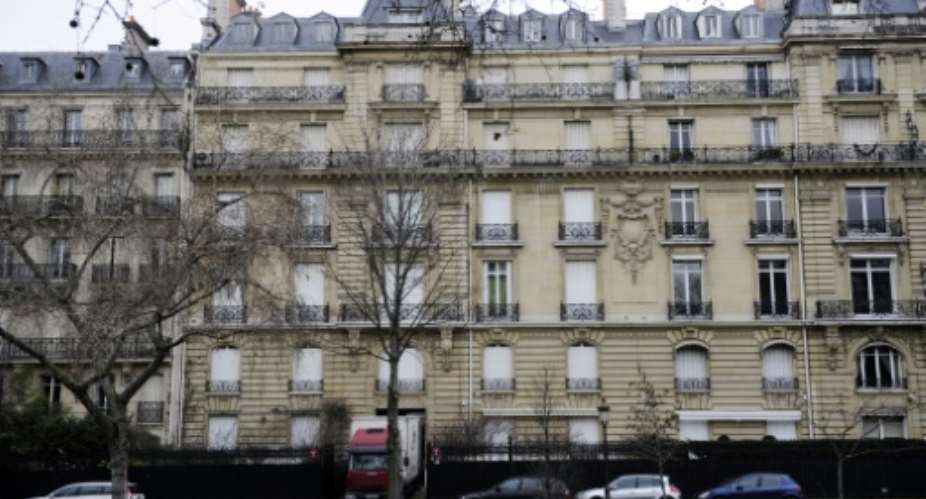France's top appeals court on Wednesday rules on the conviction handed to the powerful son of the president of Equatorial Guinea for building up luxury assets in the country with illegally obtained funds.
If the Court of Cassation throws out the appeal by Teodorin Obiang, who is vice president of the poverty-stricken central African country, his assets could be redistributed to the country's people under a new French law passed this month.
The case against Obiang, the son of Equatorial Guinea President Teodoro Obiang who has ruled the country since 1979, is the most advanced of several opened in France against mainly African elites over ill-begotten assets.
The ruling will come two days after Equatorial Guinea closed its embassy in London following a move by Britain to impose sanctions against Teodorin Obiang.
Britain accused Teodorin Obiang of siphoning off state assets into his own bank accounts to fund a luxurious lifestyle, including mansions around the world, luxury cars and the crystal-covered glove that Michael Jackson wore on his 1987-89 "Bad" tour.
Teodorin Obiang was first convicted in France in 2017 and again on appeal in February 2020 when he was handed a three-year prison sentence in absentia, fined 30 million euros ($35 million), and had all the assets that had been seized in the investigation confiscated.
The day after that verdict, his defence announced they were taking the case to the Court of Cassation.
Embassy or home?
Teodorin Obiang, 52, who oversees defence and security in the country, has long been notorious for his luxurious tastes and wildly extravagant holidays.
French judicial authorities have estimated at 150 million euros the amount he laundered in France to build up assets including cars valued at 5.7 million euros with three Bugattis, a Rolls-Royce and two Maseratis.
Among the seized property is a luxurious building on the upscale Avenue Foch in Paris that boasts a cinema, hammam and marble and gold taps, and has an estimated value of 107 million euros.
Equatorial Guinea disputed the confiscation of the building before the International Court of Justice, arguing that the building served as the country's embassy in France.
But the UN court sided with France which said the building was merely Teodorin Obiang's residence with no diplomatic purpose.
If the conviction is confirmed by the Court of Cassation, new legislation passed by parliament on July 20 would see the value of the assets redistributed to the population of the country rather than being absorbed into the French budget.
It is not immediately clear what mechanism would be used to divvy up the wealth among the poorest sections of society in the oil-rich country.
Investigations against ill-begotten assets in France were launched from 2010 after complaints launched by NGOs Transparency International and Sherpa.
Teodorin Obiang was the first to be convicted and cases are ongoing against the families of Gabon President Ali Bongo, the son of long-serving ruler Omar Bongo, and Republic of Congo President Denis Sassou Nguesso.
In June 2020, a Paris court found Syrian President Bashar al-Assad's uncle guilty of misappropriating public funds in Syria, laundering the spoils and building a vast property portfolio in France.
Rifaat al-Assad, 83, dubbed the "Butcher of Hama" for allegedly commanding troops who put down an uprising in central Syria in 1982, lives in France but is unlikely to serve his four-year sentence given his advanced age.
He is currently appealing the conviction.





 Akufo-Addo commissions Phase II of Kaleo solar power plant
Akufo-Addo commissions Phase II of Kaleo solar power plant
 NDC panics over Bawumia’s visit to Pope Francis
NDC panics over Bawumia’s visit to Pope Francis
 EC blasts Mahama over “false” claims on recruitment of Returning Officers
EC blasts Mahama over “false” claims on recruitment of Returning Officers
 Lands Minister gives ultimatum to Future Global Resources to revamp Prestea/Bogo...
Lands Minister gives ultimatum to Future Global Resources to revamp Prestea/Bogo...
 Wa Naa appeals to Akufo-Addo to audit state lands in Wa
Wa Naa appeals to Akufo-Addo to audit state lands in Wa
 Prof Opoku-Agyemang misunderstood Bawumia’s ‘driver mate’ analogy – Miracles Abo...
Prof Opoku-Agyemang misunderstood Bawumia’s ‘driver mate’ analogy – Miracles Abo...
 EU confident Ghana will not sign Anti-LGBTQI Bill
EU confident Ghana will not sign Anti-LGBTQI Bill
 Suspend implementation of Planting for Food and Jobs for 2024 - Stakeholders
Suspend implementation of Planting for Food and Jobs for 2024 - Stakeholders
 Tema West Municipal Assembly gets Ghana's First Female Aircraft Marshaller as ne...
Tema West Municipal Assembly gets Ghana's First Female Aircraft Marshaller as ne...
 Dumsor is affecting us double, release timetable – Disability Federation to ECG
Dumsor is affecting us double, release timetable – Disability Federation to ECG
